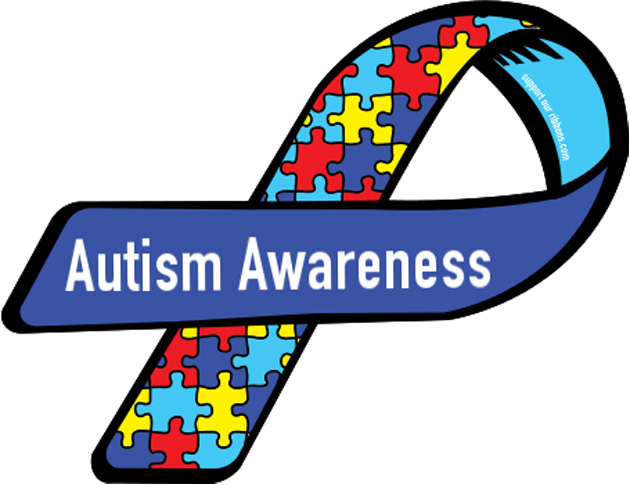By Shaan Dahar ’18, Contributor
Recently, I interviewed two of my brother’s friends, Kenta Mignot and Ken S, as well as their mothers, Kyoko Mignot and Tammi S.. Kenta, Ken, and Sam all communicate using RPM (Rapid Prompting Method.) RPM focuses on catering to an individual’s sensory system rather than an all-in-one approach, and is used with both neurotypical and non-neurotypical students. It was developed by Soma Mukhopadhyay, whose own son is on the spectrum. I feel it is necessary to explain this as I ask Ken and Kenta questions about their experience working with Soma at her training sessions in Austin, Texas. Ken has requested that I not use his name, so I have changed it here and in his mother’s answers.
1. What are your dreams and hopes for the future?
Ken: I want a girl friend and I want to get married and live independently. I want a great job but I don’t know what it is yet. I like audio engineering and music and art and computers and birds. Too many choices. Maybe open an art studio or work in sound studio. Sometimes I don’t know how to hope because I don’t know limits people will put on me.
Kenta: I like to be a geologist. I love to study rocks and minerals because thinking of how they were formed and looking at their totally unique structures make me excited.
1. What are your favorite things to do?
Ken: I like to play music on keyboards. I have 4 keyboards and 1 synthesizer. I like to play and record the demos on Audacity on my computer. I like to slow them down and speed them up. I like to go to my friend’s houses. I like to play basketball. I like to run. I like bird calls. (He has memorized over 400 bird calls from Audubon CDs.)
Kenta: I love swimming because I feel very free in the water. I can feel my body right as if the gravity were pulling me at the right rate.
2. What do you find is the most challenging part of having autism?
Ken: Sensory issues. Frequency and pitch. Sudden noises. Hard to talk. Hard to make friends.
Kenta: I think it is the reality that we cannot cure autism and we must overcome it. We are all fighters!
3. What would you like people to know about you?
Ken: I am funny. I am always listening. I understand people’s feelings. I am just like you.
Kenta: I often tell people that I am mostly like other 5th graders because I like Harry Potter, Star Wars, Lego, and watching movies. Most importantly, the differences I have (partly because of my autism) make me strong, unique, important and compassionate.
5. How has RPM helped you personally?
Ken: It helps people see that I am smart and funny. I have RPM friends.
Kenta: It has changed my life completely. It is now almost a part of me. I was lonely and isolated before I started RPM. I felt like no one understood me in real senses. I felt like I was alone even though I was surrounded by many people. RPM saved me from the total isolation greatly and helped me start living with people around me and as a member of the society.
Kenta had an additional statement to make: “I am very passionate about helping others with autism and people helping individuals with autism by sharing my experiences. I have spoken in public several times to share my experiences and hope to continue to do so as far as it helps anyone.”
Below are questions I asked Ken’s mom Tammi, and Kenta’s mom Kyoko.
1. How are you involved with your child’s life and education?
Tammi: I am Ken’s learning coach in his online charter school, and am deeply involved in providing religious, athletic, social, musical, art, educational and travel opportunities to open his world. His dad and I want him to have lots of life adventures—no limits. I just saw a quote from an autism self-advocate, Kerry Magro. He said, “Autism doesn’t come with an instruction manual. It comes with a family that will never give up.” That is us!
Kyoko: My son and I work as a team like an athlete and coach who are trying to go to the Olympic one day. We make goals together and keep working on them, believing one day we can achieve them. The goals include a variety of things like motor skills, life independent skills, and academic items.
2. What are the challenges your child faces?
Tammi: 1. Communication – Ken finds it difficult to express his thoughts. He can speak easy questions and speak easy requests, but he finds it difficult to tell me what he’s thinking. He wants to talk. He does not want to use a letter board or a talking device, so it’s an extra challenge to find out his dreams, fears, and needs, and to keep friendships.
2. Sensory Issues – Ken has many auditory issues that can distract him and/or frustrate him. The sudden onset of loud, random noises prohibits him from attending many activities in our community, so we are frequently doing “work-arounds”—-finding ways for him to do ordinary things in “un-ordinary” ways!
Kyoko: I think one of his challenges is that he has a hard time connecting his thoughts in his brain to his body/actions very well. For example, he has a lot of words to say in his head, but struggle to speak as the connection between his brain and mouth is not well established.
3. How did RPM affect your (and your child’s) lives?
Tammi: We knew Ken was bright and intelligent from his earliest days, but teachers and professionals would shut down on him. They would apply the “autism” label and have no expectations, or only see what he could NOT do. We saw Ken as a WHOLE individual with many strengths and talents. RPM confirmed this for us, and helped OTHERS see Ken’s intelligence. On our first trip to see Soma in Texas, Ken was 10 years old. She asked him what he thought of Austin. He spelled ECLECTIC. We did not know he had such a colorful vocabulary. She asked for his favorite color. He spelled, “cobalt blue.” He spelled his first poem and his first story. We had read a Harry Potter book as a family but didn’t know if he liked it. Soma asked him about it, and he spelled, “I am enjoying Hagrid. Are there really witches?” It was life-changing for us to KNOW the depth and breadth of his vocabulary, curiosities and abilities.
Kyoko: RPM has changed not only my son’s life completely but also changed my life. It gave me the true understandings of my son and his autism, and taught me patience and compassion. It is so powerful because only true understanding can lead us to true solutions.
4. What are the best qualities about your child that you are proud of?
Tammi: He feels the love of God. He is extremely smart and has a good sense of humor. He learns things of interest quickly. He is a loving, kind, gentle person who wants to be accepted.
Kyoko: Despite the many hardships he faces, he is optimistic and never forgets humor.
5. What would you like people to know about your child?
Tammi: Ken is 18 and has the fears, dreams and hopes of any 18 year-old guy. He wants to drive, he wants a girlfriend, he wants more friends, he wants to do things with his peers, he wants to live independently. He wants to fit in but he also knows his challenges. He is so much more than his sensory challenges, but people tend to only see his responses to the sensory stimuli in the environment.
Kyoko: He is fun to be with. He makes me laugh. I never get bored as long as I have him.
6. Do you have any special stories about your kids that you’d like to share?
Tammi: Ken is an athletic, fearless kid! He ran cross country in junior high, rappelled a 70′ cliff in WV at age 10 two times, learned to snow ski at Perfect North and skis the intermediate slopes each season, and learned to stand up on a surfboard in FL last summer. He zip lines and rock climbs. He likes experiencing the world!
Kyoko: When people ask my son about his successful change and growth with RPM, he always says, “I am not exceptional. There are people waiting to get their voices.” I think he is right. I’ve seen enough cases when people with autism change their lives with RPM. I hope that more people will learn about this truly innovative method.
I asked both Ken and Kenta if they wanted to share a piece of writing, art, or any accomplishment of their choosing. Ken included his pastel drawing of a goldfinch
Kenta included a poem dedicated to Soma as well as an essay he wrote for a writing competition in his school district. He excitedly tells me he won the prize with it. I have included both here.
Challenger
I can not speak because I have autism. But I have learned to spell and can communicate with others. It is very difficult to move my hand to point to letters when I spell. It is like you are juggling balls in front of a large audience. My hand gets stiff and I start sweating.
I often spell “LOL.” Because I also want to laugh out loud like you do all the time. But my brain does not send a signal to make me laugh physically. LOL. I tell you, I wish I could speak. Sad. LOL.
I know it is going to be another long and patient process, but I am trying to practice speaking. Because one day I want to call my friends by their names. I also want to say to my parents “I love you” in my own voice. Just imagining that day makes me keep going.
This is the reality I face. I may not be one of the most popular kids, but that is okay. I must fight with the reality so that I can continue to be a challenger, who I really want to be.
Miracle
It was a bitter winter
The wind was cold and strong
A little grasshopper was dying of hunger
His heart was about to freeze
Nothing was even wrong
It was the way winter should be
It did even sing lullabies to the grasshopper
Yet, the night was long and lonely
One ordinary morning, a little blue bird flew down
With a fresh leaf in her beak
She fed the grasshopper tenderly
With determination in her eyes not to give up
The summer has arrived
With smell of hopes and dreams
In the little heart of the grasshopper −
Once all had thought unsavable






